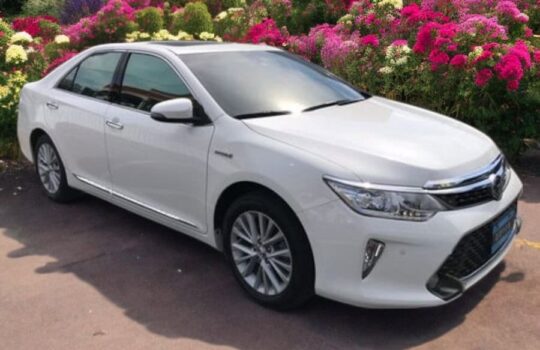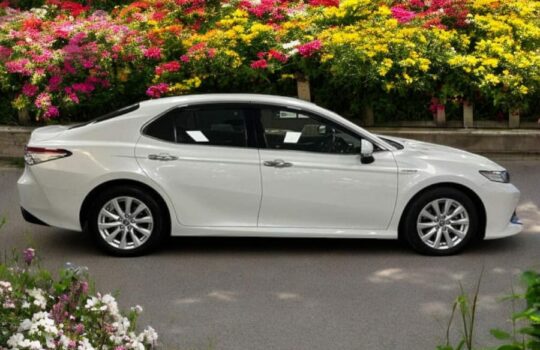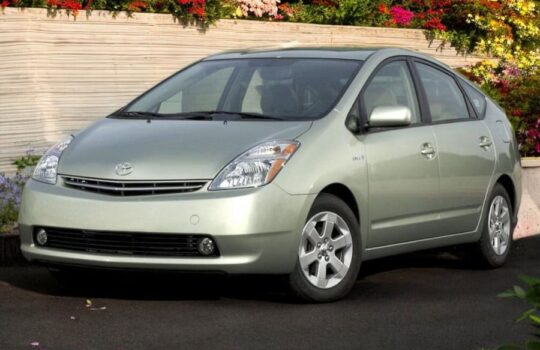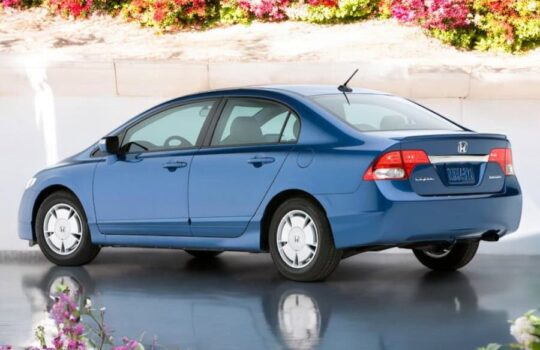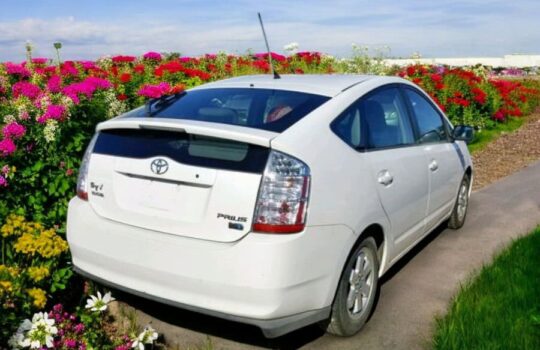The 2006 Toyota Prius Hybrid Battery
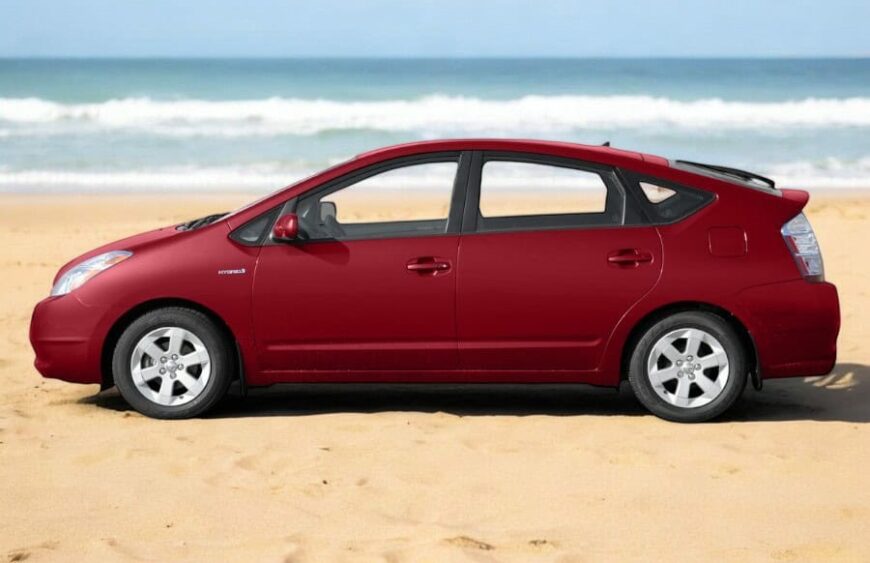
The 2006 Toyota Prius, a pioneer in hybrid vehicle technology, was once considered cutting-edge. Though its advanced technology has been surpassed by newer models, it remains a testament to its innovative design and engineering.
While your 2006 Toyota Prius may still be delivering excellent gas mileage and offering a spacious cargo area, it’s crucial to remember that its traction battery, like any other part of the vehicle, requires regular maintenance. By monitoring its health closely and replacing it when necessary, you’re taking proactive steps to protect its health and prevent potential issues.
What is a Hybrid Battery?
A hybrid battery comprises multiple cells that work in unison to generate the voltage an electric motor requires to power your car. Constructed from nickel-metal hydride and featuring special cooling technologies to prevent thermal runaway, hybrid batteries also boast high energy density, allowing them to store power efficiently within small spaces. Hybrid batteries must be properly maintained to deliver optimal performance as a key component of your Toyota hybrid vehicle.
As with any part of a vehicle, battery longevity depends on various factors. Driving habits, maintenance practices, and even where you store it all affect it. Your car should last a lifetime by following recommended maintenance schedules and not overcharging or depleting the battery pack.
Some drivers have reported their hybrid batteries lasting over 200,000 miles because they took steps to extend their lifespan, including avoiding extreme temperatures and keeping their vehicles in climate-controlled storage facilities. Furthermore, their battery design includes durable parts that reduce moving parts.
Your Toyota hybrid vehicle typically contains two batteries: its main hybrid battery that powers your gas engine to propel forward motion and an auxiliary 12V battery that provides power for electronics like headlights and audio systems. Should either of these die, your Toyota hybrid will no longer operate properly and may become inoperable.
If your battery isn’t performing as it once did, it may be time for replacement. Common signs include lower fuel economy and not being as responsive in kicking in as often. It would help if you also looked out for electrical fluctuations, and any clunky driving experience similar to having an old transmission may indicate its wear and tear is starting to show.
While new batteries can cost thousands of dollars, proper care and regular use can extend the life of your hybrid car battery. Your local Toyota dealer in Marietta, GA, may recommend maintenance services that protect it and prevent premature wear and tear. Reconditioning hybrid batteries costs much less than replacement and involves discharging and recharging them at controlled intervals to restore functionality.
What is the Life Expectancy of a Hybrid Battery?
Hybrid batteries, designed to last approximately 15 years, provide drivers with peace of mind, knowing that their vehicles won’t require costly battery replacements shortly. This longevity is a testament to the durability and reliability of hybrid battery technology.
Simply following some basic maintenance practices can extend the lifespan of hybrid batteries, such as regularly inspecting their condition and checking that all of the cooling vents are operating correctly. Furthermore, extreme temperatures should be avoided, as exposure could damage and reduce the battery’s lifespan.
Most drivers won’t need to replace their hybrid battery before approaching 100,000 miles driven on it, though regenerative braking and gasoline engines will continue to recharge it in real-time. Keep in mind, however, that more frequent driving will quickly deplete its energy reserves faster.
As hybrid batteries near the end of their lifespan, warning signs include slow performance, such as a decrease in fuel economy or odd electrical fluctuations. They may even stop turning on when the key is turned, indicating a complete failure. If you notice any of these signs, a professional must check your battery to determine if it needs to be replaced.
Though hybrid battery repairs may be feasible, they must be more cost-effective. Instead, drivers are advised to contact a local service center to estimate replacement costs—typically anywhere from $1,600 to $1,950, not including installation.
Hybrid batteries are designed to operate within specific temperature ranges, so driving in extreme heat or cold areas can significantly reduce their lifespan. Furthermore, owners must follow manufacturer recommendations regarding maintenance schedules and testing—failure to do so could dramatically shorten their lifecycle.
There are now more hybrid battery replacement options than ever. Numerous third-party manufacturers are producing top-quality batteries that could serve as suitable alternatives.
What is the Cost of a Hybrid Battery Replacement?
Initial hybrid battery replacement costs may seem intimidating, but they’re much lower than you imagine. Most hybrid drivers can go 8-15 years (100,000-150,000 miles) before needing this service, though that doesn’t mean ignoring maintenance or dashboard warning lights completely! The cost of a replacement battery typically ranges from $1,600 to $1,950, not including installation. Peace of mind comes with knowing you may go longer before needing this service again.
Various factors, including extreme temperatures, can shorten the lifespan of hybrid batteries. When possible, try parking in a garage or covered spot to protect it from extremes in temperature; exposure to extremes in both heat and cold can significantly shorten its life span. Furthermore, many hybrid batteries may be recycled, saving thousands on replacement costs.
Consider purchasing a used or refurbished hybrid battery, which might provide less power and efficiency than a new one but can be cost-effective. Before opting for this route, research and only work with reliable repair shops. Used or refurbished batteries are less expensive than brand-new versions and offer comparable performance, making them a viable option for those on a budget.
Hybrid battery replacement should generally be attempted with others. As hybrid batteries are highly complex with multiple voltage levels and require professional expertise for installation or removal, working on them without training can be dangerous and should only be performed by experts like Red McCombs Toyota’s team of professionals.
Remember that hybrid system malfunction doesn’t always necessitate replacing your battery; another issue may need attention, so don’t hesitate to schedule a thorough inspection with a certified technician.
If the cost of replacing your hybrid battery is an issue for you, consider purchasing used or refurbished from a reliable dealer. Used or refurbished batteries are less expensive than brand-new versions and offer comparable performance. Suppose that option doesn’t appeal to you. Another alternative could be purchasing replacement cells from 2k1toaster and rebuilding them yourself—an excellent way to save money while still getting a high-quality battery that will last 10+ years!
Where Can I Get a Hybrid Battery Replacement?
The Toyota Prius’ hybrid battery pack is nestled beneath its rear seat. It features 288 individual NiMH battery cells delivering 277.2 volts and 6.5 amp-hours. The battery serves two primary purposes: to power and store electric motor assistance during acceleration while improving fuel economy and to store regenerative braking energy produced when accelerating or breaking, further increasing efficiency.
Due to advanced technology, hybrid batteries boast high energy density and long lifespans, making them more durable than lead-acid automotive batteries. Furthermore, hybrids can withstand multiple charging and discharging cycles for improved vehicle performance and frequent usage—an attractive feature when selecting batteries for daily transportation.
Proper maintenance of hybrid battery packs can extend their lifespan. This means regularly cleaning out and inspecting their casing to ensure all electrical components function; batteries should be charged periodically.
However, driving with a dead battery should be avoided for various reasons. Doing so could strain other vehicle components excessively and lower the overall driving experience. If a hybrid battery becomes damaged or completely dead, it should be immediately replaced to ensure optimal driving experiences for everyone involved.
Toyota Prius models with advanced lithium-ion batteries now have more efficient batteries with higher energy densities and longer lifespans than NiMH hybrid batteries. This makes it possible to charge/discharge lithium batteries more frequently without losing charge, and lithium batteries weigh significantly less than their NiMH counterparts, which helps improve fuel efficiency and performance.
If your Toyota Prius’s hybrid battery needs replacing, it is best to contact a professional technician. They can suggest the best battery option based on your needs and budget; additionally, they may even offer mobile installation services, so you don’t need to find somewhere to get service.


